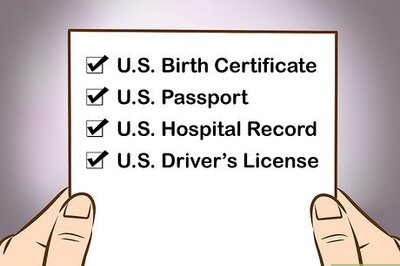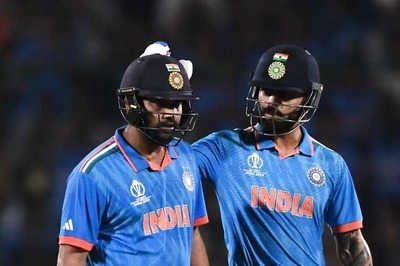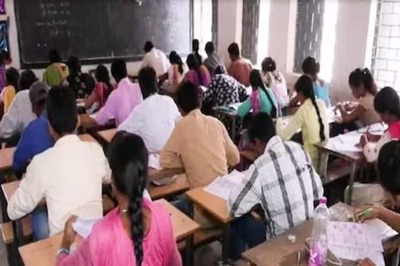
views
BHUBANESWAR: The Public Health Engineering Department (PHED) has not been able to solve the drinking water problem in slums and areas, which are not covered under piped water supply, in the City.Last year the State Government decided to install at least five standposts in each ward of the Bhubaneswar Municipal Corporation (BMC) where there is drinking water crisis. It was decided either to sink tube-well or install standposts in the water-scarcity zone.The decision was taken at a high-level meeting presided over by Chief Minister Naveen Patnaik.Accordingly, the BMC deposited Rs 1 crore with the PHED for the proposed standposts and tube-wells. It was planned to operationalise the standposts by May-end.Claiming that drinking water problem in crisis zones has been solved to a great extent, Mayor Ananta Jena told this paper that the PHED submitted utilisation certificates (UCs) for the new tube-wells and standposts installed a week ago. Jena said priority was accorded to the slums where drinking water problem was acute during summer.Disputing the Mayor’s claim, a corporator, on condition of anonymity, said many areas under the municipal corporation are still facing potable water problem. This is primarily because of lack of coordinated approach in selecting the water-crisis zones, he said. Refuting the allegation, the Mayor said the BMC had sanctioned ` 2 lakh to each ward this year for finding a permanent solution to the water problem in the slums and other areas not covered under piped water supply. In the first phase, ` 50 lakh has been sanctioned and the balance amount will be released after the work is over, he said.Respective corporators and citizens’ committees were duly consulted about selection of spot for installation of standpost or sinking of tube-well.Data show that the City faces artificial water crisis that gets aggravated during summer. As per the Central Pollution Control Board data, the total water supply in the City, which is estimated at 285 million litres daily (MLD), is inadequate.The per capita water supply is over 236 litres daily. The dependence on groundwater is quite high at over 35 per cent. However, as per PHED data, the loss due to the leakage in piped water supply is 40 per cent against the national average of 21 per cent. This results in artificial water problem in some outer areas during the stress period.PHED, the nodal agency for supply of piped water, has miserably failed to execute water supply projects in time in the City. In 2000, the department initiated measures to supply pipe water to residential areas covering Khandagiri, Dharma Vihar, Jagamara, Gandamunda, Talabania, Pokhariput, Lingaraj Vihar and Bhimtangi from the water treatment plant at Ghatikia.As per the programme, 9,200-metre pipeline, needed to link five main water tanks, was to be constructed at Dharma Vihar, Gandamunda, BDA Phase-I, Lingaraj Vihar and Bhimtangi. However, only 650- metre pipeline has been laid and the private agency, executing the project, is facing numerous problems due to lack of Government support. The work for laying water pipeline underground started on December 20, 2011, and the agency was scheduled to complete the work by April 19. Taking the pace at which the work is progressing, it is feared that it may not be completed by the end of this year.




















Comments
0 comment